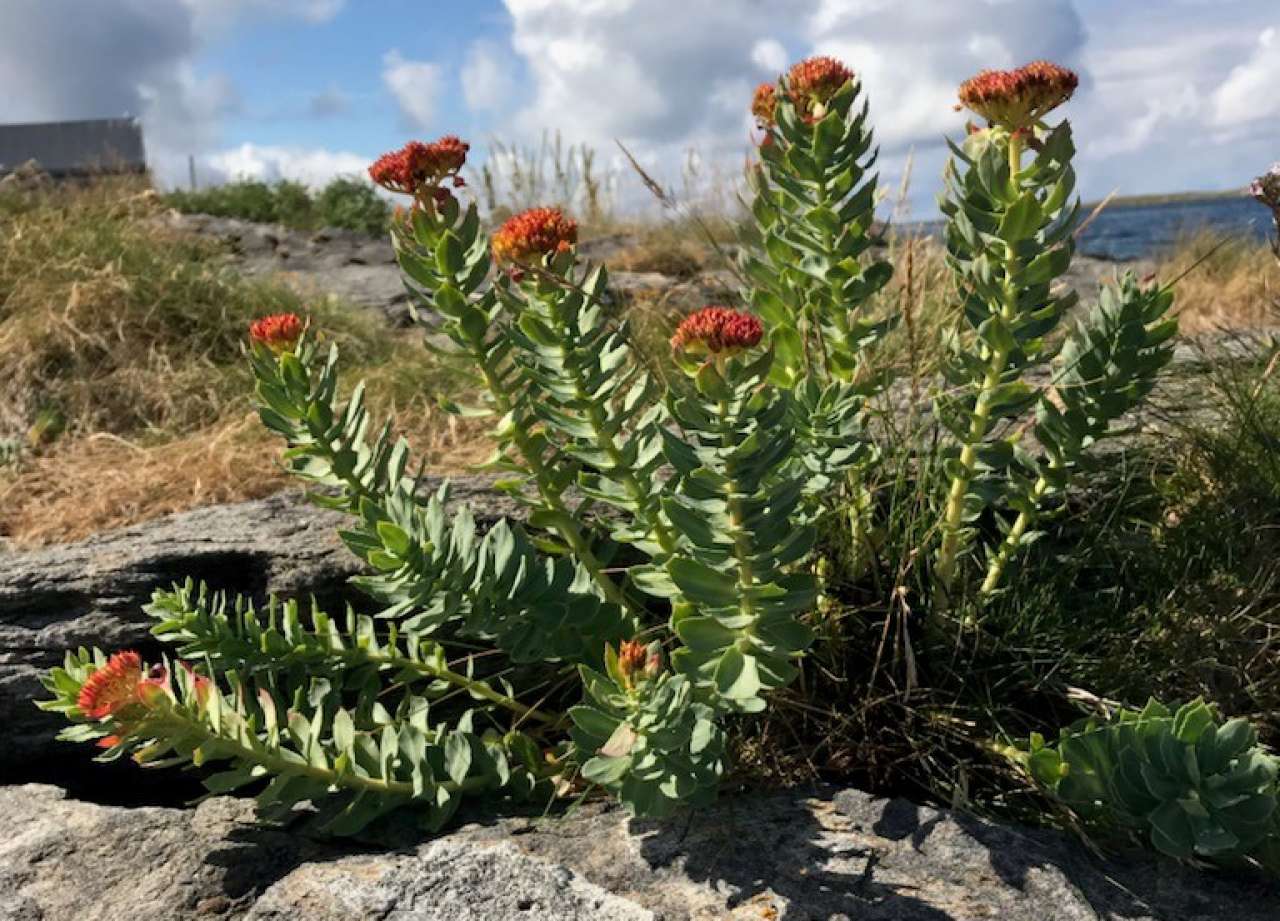Division of Food Production and Society
Bio-farming for bioactive compounds

End: dec 2023
Start: jan 2021
The objective of "Bio-farming for bioactive compounds" is to increase value in the Norwegian agricultural sector by producing bioactive compounds (phytogens) for addition to feed and packaging materials aimed to 1) increase shelf life of salmon feed 2) reduce winter ulcers in farmed fish 3) improve the health and intestinal flora in poultry, and 4) designing biodegradable and antimicrobial packaging materials.
| Start - end date | 01.01.2021 - 31.12.2023 |
| Project manager at Nibio | Mette Thomsen |
| Division | Division of Food Production and Society |
| Department | Horticulture |
| Partners | NOFIMA, Veterinærinstituttet, Institute of Macromolecular Chemistry, Physical Chemistry of Polymers Department, Romania and several agricultural companies |
Effect of e.g., variety, cultivation system and climatic factors on concentration of bioactive compounds will be studied in nine herb species oregano, yarrow, peppermint, hops, roseroot, maral root, sweet wormwood, purslane, and rosemary.
Bioactive compounds will be extracted and tested for antioxidant, antimicrobial and anti-inflammatory properties. The most potent extracts and active substances are selected based on unspecified (metabolomic) and targeted biochemical analyzes, laboratory tests and in experiments with salmon and chicken.
Effects of additives in fish feed will be investigated in laboratory models, to determine the antimicrobial activity of herbal extracts and their fractions on the growth of pathogens for salmon. Effects will be measured on growth, health and immunity of salmon, and effects on specific tissues such as head, kidney, skin, intestines and blood. Effects from extracts added to feed for boilers will be investigated in laboratory studies and in a feeding experiment with broilers.
The effects will be documented on performance, levels of intestinal pathogens, intestinal inflammation (necrotic enteritis lesions) and immune cells in peripheral blood and intestinal tissue. The third use of the extracts is to design new packaging materials for the food industry where antimicrobial herbal extracts are inserted into the packaging using technologies such as high-pressure treatment, ultrasound and electrospinning. The objective is for the antimicrobial properties to inhibit bacterial growth, increase shelf life and food safety in the product.
Publications in the project
Abstract
No abstract has been registered
Abstract
No abstract has been registered
Abstract
https://youtu.be/ngVWWIkiU5s
